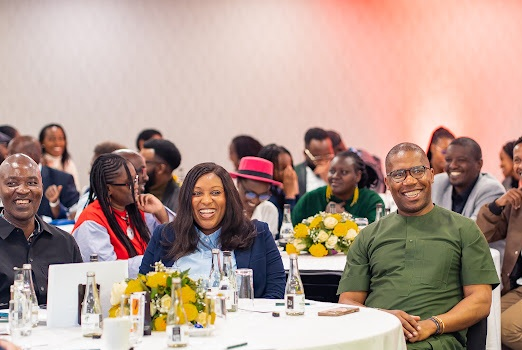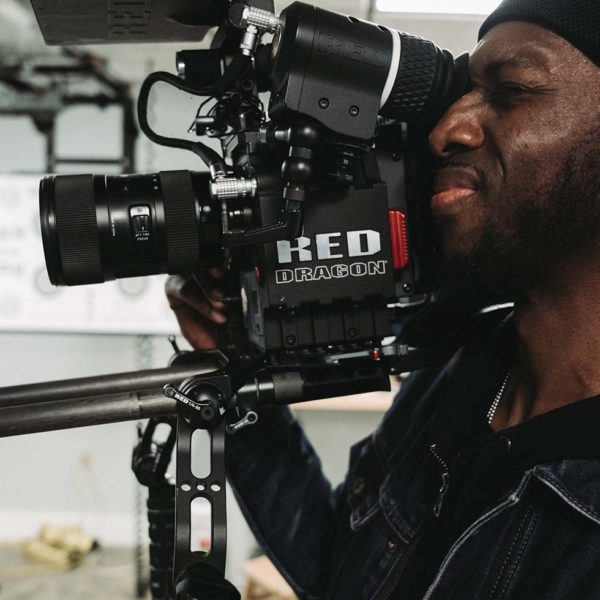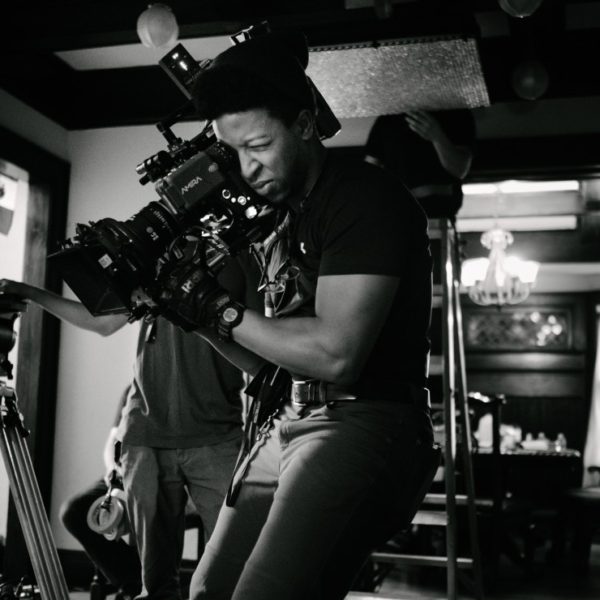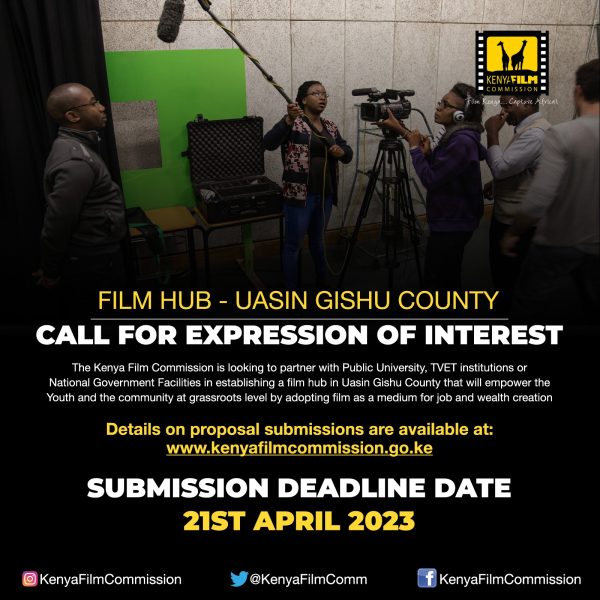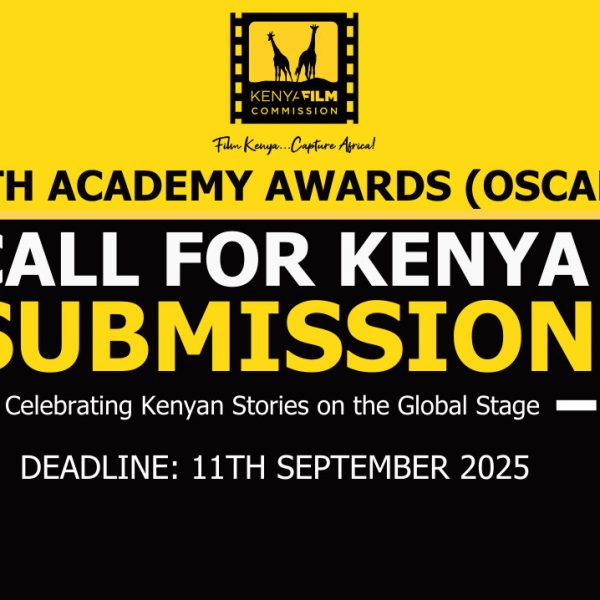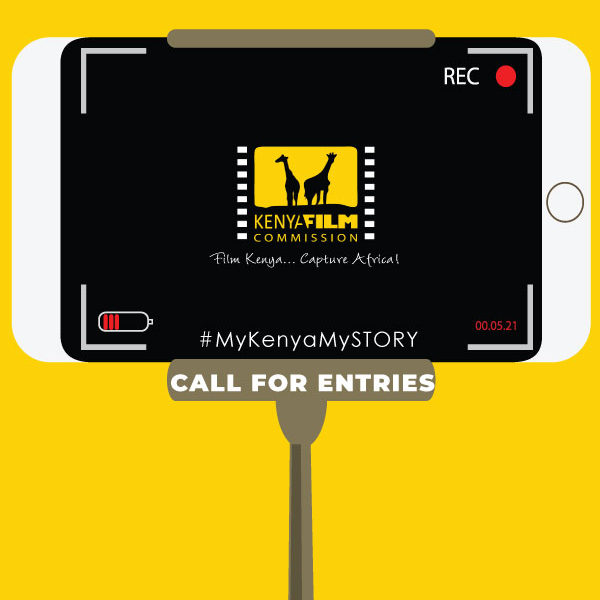The Creative Economy Roundtable, held on 19 July 2025 at Two Rivers, Nairobi, and hosted by The Akuna Group in partnership with the Commission, brought together over 100 carefully selected stakeholders from across Africa’s creative, investment, and policy landscape for a high-level dialogue on shaping the future of the continent’s creative economy. Blending insight, innovation, and inspiration, the event offered a dynamic platform for industry trailblazers, policymakers, financiers, educators, and creators to discuss a shared vision for creative sector transformation. The day concluded with a private screening of Heads of State, reinforcing storytelling as a powerful force for unity, identity, and economic opportunity.
Setting the Tone: Leadership for a Thriving Creative Sector
Opening the day, Mr. Sudi Wandabusi, Chairperson of the Commission, underscored the urgency of coordinated action in building a vibrant creative economy. He emphasized that Kenya’s cultural industries must be underpinned by clear policies, incentives, and inclusive structures that reflect the diversity and richness of its people.
“We cannot grow the creative industry without inclusion, incentives, and infrastructure,” said Mr. Wandabusi. “The time has come to centre creatives at the heart of national development.”
Mr. Wandabusi called for increased support for youth, women, and underserved creatives and reaffirmed the Commission’s commitment to policy advancement and international positioning. He also noted that policy tools such as tax rebates, production subsidies, and co-production frameworks are key to unlocking Kenya’s potential as a continental creative hub. His remarks set a powerful precedent for the level of engagement and ambition that followed throughout the day.
Positioning Kenya as a Global Film Destination
In a keynote that resonated across the room, Mr. Timothy Owase, CEO of the Commission, positioned the creative economy as one of the two defining forces of the 21st century alongside artificial intelligence. He noted that the government’s approach is intentional, with the Commission mandated to be a catalyst for industry growth.
“We must move from ‘hustle’ to scale,” said Mr. Owase. “The Creative Economy Bill and Policy will enable creators to transact, commercialize, and build value from their talent. Kenya is not just filming Kenya, it’s capturing Africa.”
He emphasized the Commission’s work in championing a Film Incentives Framework to attract local and international productions, as well as the importance of infrastructure, skills development, and co-production treaties to increase competitiveness. “Africa must tell its own stories and monetize them,” he added.
The Panels: Insights from Industry Leaders
Two thought-provoking panels tackled critical issues facing Africa’s creative sectors. Panel 1, titled “The Role and Power of Physical & Digital Infrastructure”, addressed the gaps in distribution, visibility, and access. Moderated by Mr. Ezekiel Onyango, the discussion emphasized that while production capacity is growing, creators must be supported with infrastructure that delivers their content to audiences at scale. Panelists from Konza Technopolis, fintech companies, and the creative tech sector unpacked strategies for scaling content through policy-backed digital ecosystems.
Panel 2, “Seizing Africa’s Moment: Human Capital, Talent & Transformation”, brought together leaders such as Dr. Laila Macharia (Chair, ADMI), Sarah Hassan (award-winning actress and producer), Ope Lawal (CMO, NBA Africa), Kimberly Njau (CEO, CareerKickstart Kenya), and Mr. Timothy Owase. The panel explored how African talent can rise above legacy barriers by embracing innovation, inclusive frameworks, and cross-border collaboration. Panelists emphasized the importance of demand-side investment, intellectual property protection, and training that aligns with global creative standards.
A Creative Vision Beyond the Event
Throughout the day, guests also heard from dignitaries including H.E. Alexander McDonald, High Commissioner of Barbados to Kenya, who praised Kenya’s cultural diplomacy and growing influence. Delegates from other African states and the diaspora lauded Kenya’s progress and expressed commitment to deeper collaboration.
KFC’s partnerships with both public and private sectors were highlighted as examples of how governance can align with artistic growth. Guests also explored emerging talent, digital art platforms, and curated pitches from startups disrupting traditional creative sector value chains.
The day concluded with a private screening of ‘Heads of State’ at the Two Rivers Century Cinemax home to the largest screen in East and Central Africa bringing together over 200 creatives, students, and investors in celebration of storytelling as a unifying force and an engine of prosperity.

